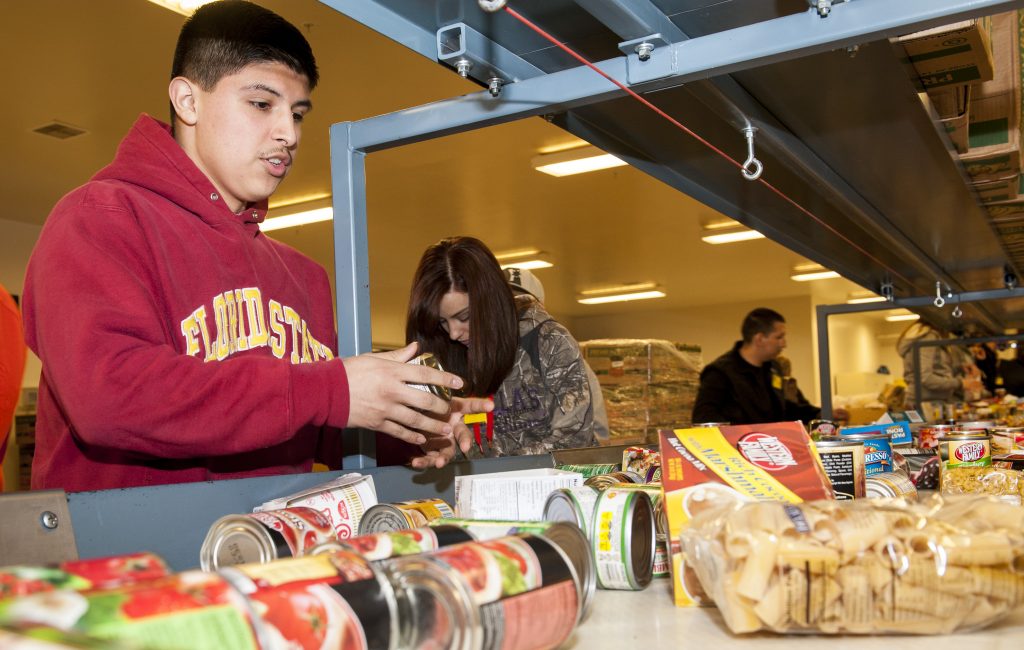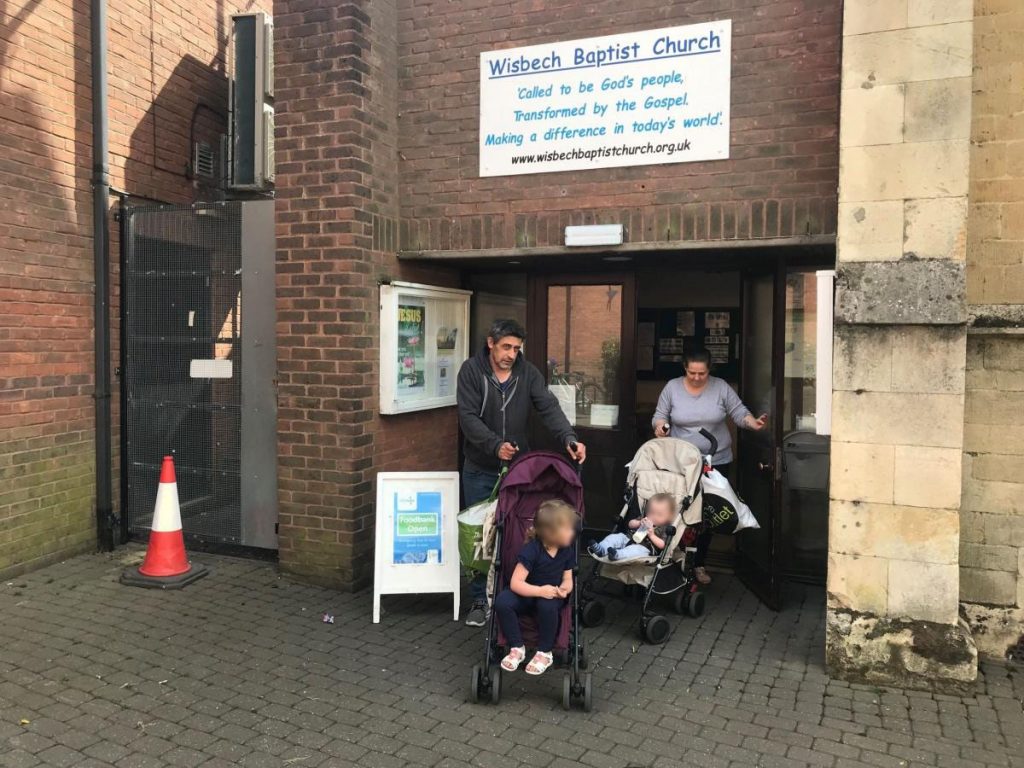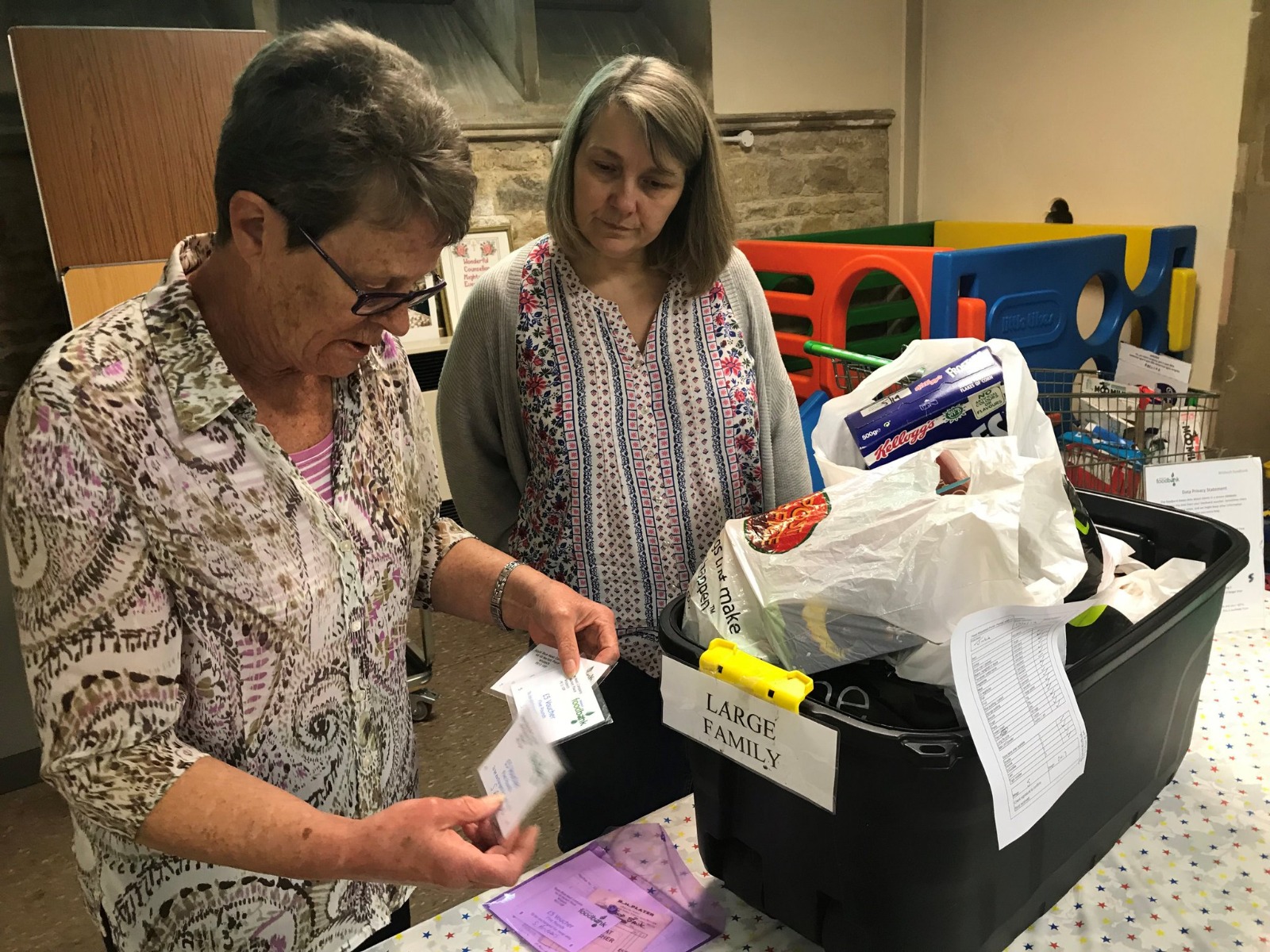Government welfare cuts have left tens of thousands of poor families in England without enough food to eat – breaching their basic human rights – a report has found.
Human Rights Watch (HRW) is calling on the UK government to adopt a spate of measures to ensure families in England are able to put adequate food on the table.
A report it released today (May 20) indicates that thousands of families, many of whom are single parent households led by women, are going hungry and are dependent on charities.
The 115-page study, entitled “Nothing Left in the Cupboards”, attributes the surge in hunger to almost a decade of austerity-motivated cuts to the welfare system and the roll-out of the controversial benefit Universal Credit, among other policies.
“This rise in hunger has the UK government’s fingerprints all over it,” said Kartik Raj, HRW’s western Europe researcher.
“Standing aside and relying on charities to pick up the pieces of its cruel and harmful policies is unacceptable.
“The UK government needs to take urgent and concerted action to ensure that its poorest residents aren’t forced to go hungry.”
The study focused on three deprived areas in Hull, Cambridgeshire and Oxford and is based on 126 interviews with affected families, food bank workers, and community centre and school staff as well as analysis of official data.
Responding to the report, a government spokeswoman told RightsInfo that it is “misleading” to consider HRW’s findings representative of England as a whole and insisted its policies are helping families out of poverty and into work.
But, speaking to RightsInfo, Mr Raj added: “It’s hard to put a precise figure to the number of families going hungry in the UK.
“This is why we support the call for nationwide food insecurity measurement, so there is a better picture of how much hunger there is.”
What Is Driving The Surge In Hunger In England?

Image Credit: Defense.Gov
According to the study, the rise in food poverty has been driven by three main factors.
The first of these is a disproportionate cut in welfare spending for families and children – falling by 44 percent between 2010 and 2018, according to HRW’s analysis.
Among these welfare cuts has been the introduction of the benefit cap – which places a limit on how much working age people can claim.
Annual increases to welfare payments have also been frozen amid rising food prices due to inflation.
The government has also introduced a two-child limit, restricting the amount of additional support low income households can receive for having a third or subsequent child.
The second factor driving food poverty, according to HRW, has been delays to initial payments on the government’s Universal Credit benefit, leaving recipients without funds for weeks.
Recipients are also “sanctioned”, their payments cut or withheld, if they fail to meet strict targets to prove that they are seeking work.
Launched in 2013, Universal Credit was intended to simplify the working-age benefits system by replacing a raft of other payments such as Housing Benefit, Child Tax Credit and income-based Job Seekers’ Allowance with a single lump sum.
The third factor has been the government’s failure to acknowledge or act on the growing evidence that the standard of living among England’s poorest families is deteriorating, HRW said.
This evidence includes skyrocketing food bank use – with charity the Trussell Trust handing out 1.6 million emergency food parcels last year.
Case Study: ‘As A Parent You Really Feel Like You’ve Let Your Kids Down’

A couple and their two children leave the food bank in Wisbech, Cambridgeshire, after collecting a three day emergency supply of food, April 2019. They told Human Rights Watch the benefit cap left them unable to pay rent and afford food. Image credit: Kartik Raj/Human Rights Watch
Joanne, a 47-year-old single mum with four children, is among those interviewed in HRW’s report.
“The only time I come [to the food bank] is if my benefits have been stopped or cut,” she said, speaking at Wisbech Food Bank in Cambridgeshire.
“I had a sanction once, so they stopped the payment completely.
“I’ve had cuts to my benefits… At least the children get a hot meal at school. But they break up for half term on Friday.
“And until my money gets sorted, it’s going to be a long few days.
“As a parent you really feel like you’ve let your kids down.
“I’ll have to gather my pennies together for a loaf of bread and 50p of butter, so they have some toast.”
What is the Legal Basis Of The ‘Right To Food’?

Image Credit: Pxhere
Article 25 of the Universal Declaration of Human Rights places the right to food within the broader concept of a “right to an adequate standard of living”.
The right to food is also enshrined in the International Covenant on Economic, Social and Cultural Rights (ICESCR), where signatory countries, such as the UK, must ensure “the fundamental right of everyone to be free from hunger”.
However the UK has not incorporated this right into its domestic law.
This means that those whose right to food has been violated cannot take action through the UK courts.
The government has also not ratified the ICESCR protocol which allows its citizens to take action against the government in relation to violations of the right to food at the international level.
The right to food is also included in a number of UN treaties including the Convention on the Rights of the Child – which calls for states to help parents or those responsible for looking after children to ensure appropriate nutrition.
Similar stipulations are included in the Convention on the Elimination of Discrimination Against Women (CEDAW) – including adequate nutrition during pregnancy and lactation – and the UN Convention on Rights of Persons with Disabilities.
What Needs To Change?
Human Rights Watch recommends the government addresses food poverty by taking the following steps:
- Recognise the right to food in domestic law
- Repeal the two-child limit
- End delays in accessing payments under Universal Credit
- Ensure that benefit payments keep pace with inflation, including the rising cost of food
- Develop an anti-hunger strategy, including a legal requirement to measure food insecurity and report the results to Parliament.
- Establish a cross-party working group to review the human rights and policy implications of rising food poverty.
What Does The Government Say?
A government spokeswoman said: “It’s misleading to present these findings as representative of England as a whole.
“We’re helping parents to move into work to give families the best opportunity to move out of poverty.
“And it’s working – employment is at a record high and children growing up in working households are five times less likely to be in relative poverty.
“We spend £95 billion a year on working-age benefits and we’re supporting over one million of the country’s most disadvantaged children through free school meals. Meanwhile we’ve confirmed that the benefit freeze will end next year.”
She added that it is not true to say that people need to wait five weeks for their first Universal Credit payment, insisting the benefit is available to claimants on day one through a 100 per cent advance.







